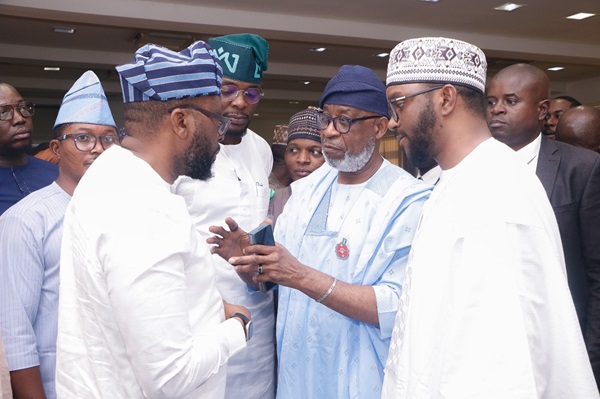
The House of Representatives Committee on Solid Minerals Development has advocated increased budgetary allocations to the Ministry of Solid Minerals Development for the upcoming fiscal year, to enhance the sector’s role in diversifying the economy.
During the budget defence session of the Ministry of Solid Minerals Development, the chairman of the House Committee on Solid Minerals, Hon. Jonathan Gbefwi emphasised the immense potential Nigeria’s solid minerals hold to attract foreign exchange, drive economic growth, and significantly contribute to the gross domestic product (GDP).
Gbefwi underscored the historical significance of the solid minerals sector, noting its past contribution of over 50 per cent to the GDP in the ‘70s. However, he expressed concern that the current contribution stands at a mere 0.65 per cent. Encouraged by President Bola Tinubu’s reaffirmation of the administration’s commitment to the solid minerals sector, Gbefwi commended the ministry’s proactive steps in seeking strategic bilateral and trade partnerships to attract investments.
Despite his initial enthusiasm, Gbefwi expressed disappointment upon reviewing the 2024 budgetary estimates for the ministry. He deemed the allocation grossly inadequate to make a meaningful impact in such a critical sector. In response, he pledged the House of Representatives commitment to not only significantly increase budgetary allocations to the mining sector but also collaborate with the executive to implement necessary reforms through legislative frameworks.
In his presentation, the Minister of Solid Minerals Development, Dr. Dele Alake reiterated the federal government’s commitment to diversify the economy through the development of solid minerals. He highlighted the discovery of at least 44 economically viable minerals and stressed the urgency of sanitising the sector and creating an enabling environment for mining operations.
Alake emphasised the need to learn from the mistakes of relying solely on oil revenue and urged both the executive and legislative branches to work collaboratively in steering the country out of its economic challenges. He recalled the conceptualisation of his 7-point agenda, aimed at redirecting global attention to Nigeria’s mineral resources, which has garnered significant interest.
Addressing concerns of insecurity in the mining environment, Alake revealed ongoing efforts in collaboration with the Ministry of Defence to establish a new security architecture infused with advanced technology.
In response to the committee’s commitment, Alake, through his special assistant on media, Segun Tomori expressed gratitude. He emphasised the positive impact increased budgetary allocations would have on exploration efforts, generating crucial geo-data on mineral resources, attracting major players and ultimately contributing to government revenue and economic development. The collaboration is seen as a crucial step toward harnessing the untapped potential of Nigeria’s solid minerals sector.


